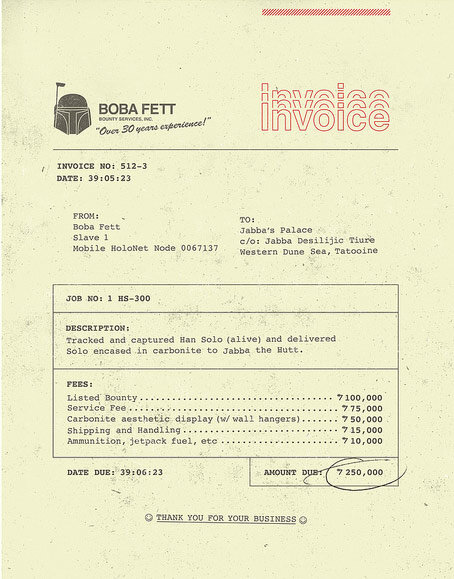Explore Small Business Finance Topics
Discover our most popular topics for Canadian solopreneurs and small business owners. From income tax and GST/HST to QuickBooks tutorials and managing your business finances, these guides are designed to help you move from financial uncertainty to financial confidence.
Click on any topic and scroll down to see related articles.
📑Canadian Income Tax
Guidance on filing and planning your Canadian taxes, from T1 and T2 returns to instalments
📊Managing Business Finances
From cash flow to pricing and metrics — learn to manage your business finances with confidence.
🏢 Canadian Business Structure
Should you incorporate? Stay informed on sole proprietorships, corporations, and registrations.
💰 GST/HST & QST
Understand how to register, file, and maximize input tax credits while avoiding common mistakes.
🧾 Guides and Tutorials
Practical accounting processes like reconciliations, journal entries, and reporting.
📝 Deductions & Expenses
Learn which expenses are CRA deductible and how to track them for maximum tax savings.
Quebec Taxes & Business
QST, Revenu Québec filings, Quebec payroll, and provincial rules every entrepreneur should know.
👤 Paying Yourself
Salary vs dividends, management fees, and how to pay yourself from your corporation or small business.
💻 QuickBooks Online & Tools
Tutorials, guides and time-saving tips for using QuickBooks Online effectively.
🏦 Money & Personal Finance
Personal finance strategies for entrepreneurs, from RRSPs to saving for taxes.

How to Prepare a Small Business Budget
As a solopreneur or small business owner, you might not think a budget is necessary. And for some businesses, that may be true especially if you have a service based business with steady income and minimal expenses.
But for many small business owners, cash flow can be inconsistent from month to month. Your sales can be very high one month and much lower in other months. Similarly you might have to pay a significant expense in particular months, while others are much leaner. And while this uncertainty is part of what makes entrepreneurship exciting, it also makes it stressful.
One of the most effective ways to reduce that uncertainty is to create a cash-flow budget and update it as your actual numbers come in.

10 Year End Financial and Tax Tips for Your Small Business
As the end of the year approaches, many small businesses experience a natural slowdown. This makes it a practical time to review your business, financial, and tax position before year-end.
A year-end review allows you to identify planning opportunities, make adjustments before December 31, reduce last-minute tax preparation issues, and ensure you are properly prepared for the upcoming year. These tips are intended to help you assess your current situation and take action where needed.

9 Tips For Managing Your Customer Receivables
Any sales that occur within a business where payment is not made up front (eg. retail) or in advance of the sale (eg. down payment for a car), is reflected as an “Accounts Receivable”, which is accounting terminology for amounts owing by customers to a business. It is good to have accounts receivable, as this means you are generating sales. The downside, however, of having accounts receivable is that it represents cash that you don't have now, and along with that comes the possibility that your customers won’t pay you. Luckily a good system to manage your accounts receivable will help to reduce the number of non paying customers thereby avoiding bad debts. Below are some steps to help manage and collect on your accounts receivable:

7 Qualities of Highly Desirable Clients
When you are a business owner/freelancer, there is wonderful feeling of gratification when you land a great client. These are clients that ask great questions, respect our work and make us feel happy to have chosen the entrepreneurial route. Then there are the not so great clients who have unrealistic expectations, are unimaginative and often just plain clueless.
It should also go without saying that we must also do what it takes to be provide an excellent experience to our clients and customers. It is not dissimilar from being in a relationship with a partner or spouse and for both sides to get the most out of it, you as the service provider, must also be responsive, respectful, fair and transparent.

Employee vs. Self Employed: Criteria and Considerations
For the majority of income earners, employment status is pretty evident. If you are going to the same place every day, have an assigned cubicle with a computer and a corporate stapler, and you have a boss that tells you what you need to do, chances are you are an employee. Conversely if you have several clients, use your own laptop, and are worried about where your next sale is going to come from, you are probably self employed.
There are, however, some workers whose status is not that apparent. For example you may work from home and use your own computer, but you report to one entity, where someone supervises and directs your work. In these cases a determination needs to be made as to whether you are an employee or self employed. It is not enough for the person paying you to determine your classification ; often, payers are biased as they may not want to take on the financial costs and responsibilities of having an employee (explained below). As such, when in doubt about your status, it is helpful to answer the following questions:
Breaking Up with a (Likeable) Client
Many of us have clients who are annoying, cheap, stupid , high maintenance or some combination thereof. As a new business owner, we are often stuck with these clients because we need them. However, we look forward to the day when we will have the thriving business that we so deserve, and fantasize about the spectacular way in which are going to fire them (you can shove your business into your rear orifice etc.) This is actually a productive fantasy as can help to channel and concentrate anger. Of course, in the majority of cases, a firing should be conducted with slightly less vigour.

